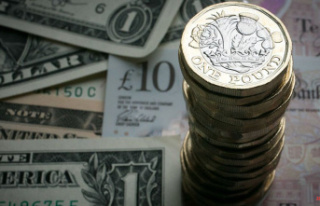After the shocking resignation of Rishi Sunak as Chancellor, Nadhim Zahawi, his replacement, has stated that he and Boris Johnson want "to rebuild the economy" to bring down inflation.
Mr Zahawi stated that "nothing is off-the-table" when it comes to tax cuts.
What options are available to the new Chancellor in order to implement those plans?
Zahawi stated that he would like to cut taxes and "bear it down" on inflation.
These aren't always happy friends. He can't cut taxes because it puts more money in the economy which drives up prices.
Temporary cuts in VAT (the tax charged when you buy goods and services) of 20% to 17.5% would reduce the cost of goods and services included in the inflation basket. Prices would drop and taxes would be cut.
However, there are some issues. Businesses in trouble might not pass on the cut.
Even if it was, people would still be buying the same amount of goods in an economy with low supply. This could lead to inflation rising even faster than it has in 40 years.
Prices would only rise if the VAT was cut.
Before the next election, Mr Zahawi might bring forward the 1p income-tax cut Rishi Sunak promised would occur in 2024.
The Taxpayers Alliance is a pressure group that advocates for lower taxes. It has stated that if the government wants to give families "a reprieve from tax increases", they would do well to bring forward the planned income tax cuts instead of trying to trick taxpayers into believing they are better off.
Rishi Sunak, however, delayed the reduction in the income tax that people have to pay because it was too expensive. It would have cost the government approximately PS5bn.
It would also be more beneficial to higher-earning people than it would to lower-earning ones, and it wouldn’t slow down the rate at which prices rise.
Zahawi hinted at the possibility of scrapping a planned corporate tax increase due in 2023. This is the only tax that he has specifically mentioned. In April 2023, the tax on company profits will rise from 19% up to 25%.
Interview with BBC Breakfast, Thursday: Mr Zahawi stated that companies make long-term investment decisions. Corporation tax is one of the taxes they can compare worldwide. I want to carefully examine all the options that I have to bring down inflation and return to a dynamic economy that produces growth.
The Treasury forecasted that the tax would raise an additional PS12bn next fiscal year and rise to PS17bn by 2026.
This is a positive sign, as higher costs and lower consumer demand are reducing company profits.
It would be very cost-effective to reverse some of it, and send a traditional conservative pro-business message.
Conservative MPs worry that raising the tax will discourage foreign investments in the UK. This is despite the fact that investment has declined since the UK voted to leave EU. The amount of money that corporations tax has raised over the years has been increasing even though the rate has fallen.
If cutting taxes and lowering inflation seems like a difficult task, what other options does Mr Zahawi have to ease the burden?
Government payments will soon be available to low-income households to help them with their winter energy bills and the cost of living.
Is the chancellor going to consider providing direct assistance for households?
Direct payments are uncommon - at least for a Conservative government. But these are rare times.
Cost-of-living payment serve two purposes: they are popular and relatively easy to administer.
Next week, the first instalment for financial support will be delivered directly to low-income households that are on means-tested welfare benefits.
In a difficult winter, adding more payments would allow people to spend their money quickly on heating, food and transportation.
Direct payments, however, are not long-term and cannot be changed to tax increases. They still need to paid for.
Mr Zahawi will need to find the money while he is under pressure to reduce taxes.
Inflationary payments can also be made by these payments, increasing the risk of higher prices over the long-term.
Public expectations of a government that will step in in any crisis situations, such as furlough or cost-of-living payments, are raised by the fact that it does so.
This could lead to unmanageable costs over time.












